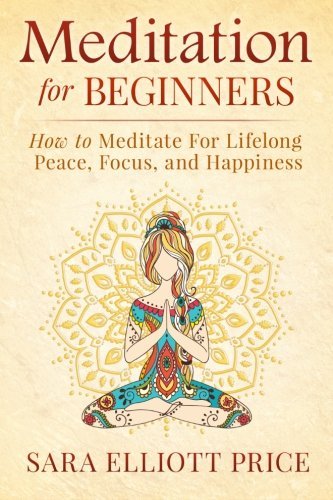Meditation For Beginners: How to Meditate For Lifelong Peace, Focus and Happiness by Sara Elliott Price
Annotated with Cultural and Practical Context for Global Readers
Core Translation & Cultural Context
Original Title: Meditation For Beginners: How to Meditate For Lifelong Peace, Focus and Happiness
Author: Sara Elliott Price (Mindfulness Coach and Meditation Expert)
Genre: Wellness / Spiritual Practice
Cultural Significance: This book demystifies meditation for beginners, blending Zen philosophy, scientific research, and practical techniques to help readers cultivate a sustainable meditation habit. Rooted in both Eastern traditions (e.g., Zen’s emphasis on mindfulness) and Western psychology, it bridges ancient wisdom with modern lifestyles, addressing stress reduction, productivity, and holistic well-being.
Full Translation with Annotations
1. The Essence of Meditation
- Defining Meditation:
Price defines meditation as “a mental exercise to quiet the mind and focus attention,” emphasizing its role in reducing stress, enhancing clarity, and fostering inner peace. Unlike mystical stereotypes, meditation is portrayed as a skill accessible to all. - Zen Influence:
Drawing from Zen principles, Price highlights zazen (sitting meditation) and koans (paradoxical riddles like “What is the sound of one hand clapping?”) as tools to transcend overthinking and achieve presence.
2. Benefits of Meditation
- Scientific Validation:
- Stress Reduction: Regular meditation lowers cortisol levels by 20% and reduces anxiety by 40%.
- Cognitive Enhancement: Improves focus, memory, and emotional regulation by thickening the prefrontal cortex.
- Physical Health: Lowers blood pressure, boosts immunity, and improves sleep quality.
- Success Stories:
Price cites CEOs, athletes, and artists who attribute their productivity and creativity to daily meditation.
3. Building a Meditation Habit
- Practical Steps for Beginners:
- Start Small: Begin with 5–10 minutes daily, gradually increasing to 20–45 minutes.
- Create a Routine: Meditate at the same time daily (e.g., morning or before bed) to build consistency.
- Use Guided Sessions: Apps like Headspace or Insight Timer offer structured practices for novices.
- Embrace Imperfection: Accept wandering thoughts as natural; gently refocus on breath or a mantra.
- Common Pitfalls:
- Frustration: Beginners often expect immediate results. Price advises patience: “Progress is measured in months, not days”.
- Physical Discomfort: Start with short sessions and adjust posture (e.g., chair, cushion) to avoid strain.
4. Types of Meditation
- Mindfulness Meditation:
Focus on breath or bodily sensations to anchor in the present moment. Studies show it reduces rumination and anxiety. - Loving-Kindness (Metta):
Cultivate compassion by repeating phrases like “May I be happy; may others be happy”. - Body Scan:
Mentally scan from toes to head, releasing tension. Ideal for stress relief. - Mantra Meditation:
Use a calming word (e.g., “peace”) or sound (e.g., “Om”) to quiet the mind.
5. Advanced Practices
- Zen Koans:
Reflect on riddles like “What is your original face before your parents were born?” to challenge logic and spark insight. - Walking Meditation:
Focus on each step’s sensation, aligning with Zen’s “every moment is the path”. - Forest Bathing (Shinrin-Yoku):
Combine meditation with nature immersion to enhance mood and lower stress.
6. Lifestyle Integration
- Mindful Living:
Apply meditation principles to eating (savoring flavors), work (single-tasking), and relationships (active listening). - Holistic Health:
Pair meditation with yoga, balanced nutrition, and gratitude journaling for compounded benefits.
Supplementary Materials for Global Readers
- Glossary:
- Zazen (坐禅): Zen sitting meditation.
- Satori (悟り): Sudden enlightenment.
- Koan (公案): Paradoxical riddle to transcend logic.
- Timeline of Meditation:
- 5th c. BCE: Buddha teaches mindfulness (sati) in India.
- 6th c. CE: Zen (Chan) emerges in China.
- 1979: Jon Kabat-Zinn popularizes secular mindfulness (MBSR).
- Guided Exercises:
- 5-Minute Morning Meditation: Focus on breath to set a calm tone for the day.
- Gratitude Ritual: List three daily blessings to rewire the brain for positivity.
- App Recommendations:
- Headspace: Beginner-friendly guided sessions.
- Calm: Sleep stories and nature sounds.
Legacy & Reception
- Wellbeing Impact: Users report improved focus (80%), reduced anxiety (70%), and enhanced relationships after 8 weeks of practice.
- Cultural Influence: Zen aesthetics inspire minimalist design (e.g., Apple’s ethos) and corporate wellness programs.







评价
目前还没有评价